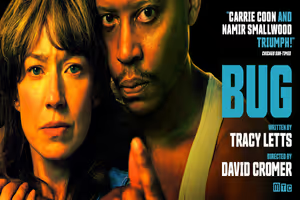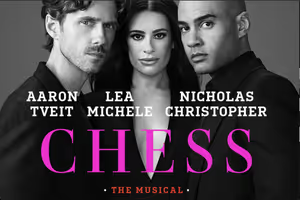Director of Programs, SPARC - SPARC
LISTING INFORMATION
Organization
Founded in 1981 by Richmond actress Jeri Cutler-Voltz, SPARC (School of the Performing Arts in the Richmond Community) provides transformative performing arts education to more 3,000 students each year. Through SPARC’s highly skilled teaching artists who intentionally integrate the arts with youth development principles, students discover their creativity and build critical learning and life skills that carry into adulthood. SPARC’s mission is to profoundly influence young people’s lives through exceptional performing arts education.
Since its founding, SPARC has grown into a nationally recognized provider of community-based arts education programs for young people. SPARC graduates are accepted into top university performance programs each year. Through its range of classes, workshops, camps, and productions, SPARC provides performing arts training and skill development—including confidence, creativity, and character building—which have helped launch a number of national-level performing artists to successful careers in theater and music. With more than 150 students assisted by free or reduced-price tuition annually in its arts training programs, SPARC never turns away a child because of inability to afford its programs. SPARC offers a wide range of theater training levels, from introductory classes to auditioned productions. Its season includes eight auditioned productions per year. SPARC’s summer camp series—its largest training series—enrolls almost 1,000 students each year.
SPARC provides numerous educational and community outreach initiatives. Debuting in 2006, SPARC’s STAGES program serves more than 400 students each year, bringing performing arts education and opportunities into school systems in primarily low income neighborhoods. SPARC’s New Voices for the Theater program inspires high school students across Virginia to explore creative playwriting, awarding a two-week summer residency to the top eight applicants statewide. In 2012 LIVE ART brought inclusion to the range of performing arts programs offered by SPARC, growing into an annual program serving more than 200 students ages 9 to 21, half with developmental disabilities and half typically developing. In response to the adoption of its current strategic plan in 2017, SPARC has invested significant resources in Creative Youth Development programming. This includes a middle school arts program with a partner in one of Richmond’s lowest income neighborhoods. SPARC has also launched Spectrum, a theater program for LGBTQ+ youth and allies based on best practices from the Pride Youth Theater Alliance.
In 2009 SPARC purchased its property on North Hamilton Street in Richmond and transformed the 30,000-square-foot facility into class studios, a black-box theater, scenic construction and warehouse space, and administrative offices. Debt-free ownership was achieved in 2013. Final renovations added two additional studio teaching spaces, an elevator, and the attainment of near-universal accessibility. SPARC now builds and stores sets, rehearses and produces shows, and trains and applauds young actors all in one place while still maintaining satellite locations for access and convenience of students and their families. SPARC’s neighborhood, Scott’s Addition, has become one of the trendiest and fastest growing neighborhoods in the city, boasting an abundance of restaurants, breweries, entertainment, and residential offerings.
Incorporated in 1984 as a 501(c)(3) nonprofit, SPARC is governed by a 24-member board of directors, led by President Pamela S. Belleman. Ryan Ripperton was named Executive Director in 2010—the third in SPARC’s history. With his administrative, educational, and performing arts experience, Ripperton is leading SPARC to diversify its programs, solidify its business model, and expand its community presence through collaborations and partnerships. In the fiscal year ending August 31, 2018, total reported revenue was $2.8 million, with $1.8 million from contributions and grants and $850,000 from program service revenue. Reported expenses were $2.7 million.
Community
Incorporated in 1742, Richmond is the capital of the Commonwealth of Virginia and the third largest city in the state. The Richmond Metropolitan Statistical Area is comprised of the City of Richmond and surrounding cities, towns, and counties, with a total population of 1.3 million people and growing. The region offers activities for everyone, including a lively downtown, arts performances and festivals, state and national parks, wineries and quiet rolling hills. Richmond’s proximity to Washington, D.C., mountains, and the coast provides residents countless opportunities to experience culture and adventure.
Richmond’s business climate is thriving, with several Forbes 500 and Forbes 1000 companies calling the region home. The area’s top employers include federal, state, and local government, as well as the healthcare, financial services, and retail industries. Richmond has a thriving nonprofit sector, including the arts. Americans for the Arts’ Arts & Economic Prosperity 5 study found total expenditures by nonprofit arts and culture organizations to exceed $211 million in 2016. The Richmond region also features a number of colleges and universities, including Virginia Commonwealth University (which houses the top public art school in the United States), University of Richmond, Virginia Union University, Virginia State University, and Randolph-Macon College.
Richmond has recently gained national recognition for its culture. Trip.com named Richmond the most artistic mid-sized city in America and Artnet named Richmond the ninth best United States city overall for art lovers. The New York Times included Richmond in its list of 52 Places To Go in 2020, calling it a “dynamic cultural center on the cutting edge of the arts, food, and recreation.” The city was named by National Geographic as a place to visit for food and by Condé Nast Traveler as a southern food destination you need to know about.” The Richmond region also boasts more than 30 craft breweries. Richmonders enjoy a wealth of historical landmarks, natural beauty, and opportunities for outdoor recreation, including the country’s only class III and IV urban rapids, the extensive James River Park system, and some of the most diverse bike trails of any city in the United States.
Sources: visitrichmondva.com; livability.com; nationalgeographic.com; cntraveler.com; richmondgov.com; vcucns.com; americansforthearts.org; richmond.com; trip.com; artnet.com; newyorktimes.com
Position Summary
The Director of Programs will provide skilled leadership and administration for all aspects of SPARC’s programs, manage the program team, and ensure that all activities are in alignment with the organization’s mission, vision, and goals of the strategic plan. Reporting to the Executive Director and serving as a member of the leadership team, this position will guide the development, evaluation, and continuous enhancement of curriculum through data-driven decisions. The Director of Programs will be a positive role model who works creatively and collaboratively across the organization and throughout the community to build strong external relationships with individuals and institutions that contribute to the learning experience and success of SPARC’s students.
Roles and Responsibilities
Program Leadership and External Relations
Serve as a vital member of the leadership team, participating in a collaborative and communicative environment across all departments.
Champion and actively participate in the strategic planning process, exploring new initiatives for potential program focus.
Build and manage positive and productive external relationships with partner organizations and other key alliances to advance strategic goals.
Serve as lead ambassador and advocate for SPARC within the Richmond arts education network and in the greater community.
Attend SPARC performances and maintain an active presence at other performing arts events in the community.
Participate in donor cultivation, solicitation, and stewardship activities with the Executive Director and development staff as required.
Support an organization-wide culture of philanthropy by partnering with the development department in the creation of funding proposals, impact reports, and donor communication.
Stay current on emerging trends and best practices in arts education, Creative Youth Development (CYD), DEI (diversity, equity and inclusion), and national and local events that may influence the direction of SPARC’s programs and the lives of its students.
Program Strategy, Delivery, and Evaluation
Establish program priorities and success metrics, partner with teams to set goals aligned with organizational priorities, and support the Executive Director in refining the vision and forward direction.
Provide leadership and support to program directors in the creation of high-quality educational curricula and faculty expertise for all SPARC programs.
Set clear expectations for accurate and timely data collection by program team, oversee data collection, and utilize data to analyze key drivers and barriers to program progress and performance.
Conduct an annual program evaluation process, compile and analyze results with all key stakeholders, and provide recommendations and action plans to adjust program goals and design as necessary.
Establish goals and benchmarks for program growth and quality, creating and managing plans to achieve these goals.
Provide leadership and support to program directors in the development of annual program budgets totaling $1.4 million annually.
Monitor and reconcile expenses monthly.
Celebrate successes and recommend changes and course corrections as necessary.
Team Leadership and Mentoring
Manage a team of seven program directors, who collectively supervise approximately 120 staff, fellows, adjunct faculty, and technicians.
Adhere to a weekly meeting schedule and provide guidance and oversight to each program director as necessary.
Set standards for quality of work and hold program directors accountable to organizational priorities and expected outcomes.
Recruit and retain staff and faculty in accordance with institutional diversity goals.
Conduct annual performance reviews, goal setting, and address performance issues in a timely and professional manner.
Model core values and provide mentoring and other professional development opportunities to support the program team.
Traits and Characteristics
The Director of Programs will be an innovative leader who organizes and inspires others to believe in a vision while creating a sense of purpose and direction. This individual will be a highly visible leader in the community with a passion for creating positive change through the arts, building relationships, and effectively leveraging networks to increase awareness of SPARC’s mission and impact. A sound decision maker, trusted collaborator, and tactful communicator, the Director of Programs will demonstrate integrity and optimism and dependably involve people in decisions that affect them. With a commitment to creativity and continuous learning, the Director of Programs will embrace the mission to profoundly influence young people’s lives through exceptional performing arts education and remove barriers for those most impacted by societal inequality.
Additional competencies include:
Leadership and Diplomacy – The ability to organize and motivate others to accomplish goals, with a keen understanding of and sensitivity to the organizational landscape.
Teamwork and Interpersonal Skills – The natural aptitude to cooperate with others to meet objectives, build meaningful relationships, and demonstrate respect for individual perspectives.
Planning, Organizing, and Priority Management – The proficiency to develop procedures, processes, and systems for order, accuracy, efficiency, and productivity while allocating resources according to priorities.
Self-Starting and Personal Accountability – The capacity to demonstrate initiative and a strong work ethic to meet or exceed goals while being accountable for personal and professional actions.
Qualifications
Qualified applicants must have a master’s degree or equivalent work experience, plus a minimum of five to seven years of increasing responsibility in performing arts education management. Direct experience overseeing theatrical production is required.
Compensation and Benefits
SPARC provides a competitive salary and benefits, including paid time off, health care contribution, short- and long-term disability coverage, term life insurance, and matching 401(k) contributions.
Applications and Inquiries
To submit a cover letter and resume with a summary of demonstrable accomplishments, please click here or visit artsconsulting.com/employment. For questions or general inquiries about this job opportunity, please contact us at SPARC@ArtsConsulting.com.
Ms. Cindy Grzanowski
Vice President
Arts Consulting Group
40 South 7th Street, Suite 212-148
Minneapolis, MN 55402
Tel (888) 234.4236, Ext. 210
Email SPARC@ArtsConsulting.com
SPARC is committed to the most fundamental principles of equality of opportunity and human dignity. SPARC does not discriminate on the basis of race, color, religion, national origin, sex, gender identity (including gender expression), sexual orientation, disability, age, marital status, military or veteran status, or status with regard to public assistance.
CONTACT INFORMATION
| COMPANY: | SPARC | |
|---|---|---|
| DATE POSTED: | 1/31/2020 | |
| WEB SITE: | click here | |
| PHONE: | (888) 234.4236, Ext. 210 | |
| E-MAIL: | SPARC@ArtsConsulting.com | |
| ADDRESS: | 2106 North Hamilton Street Richmond, VA 23230 |
|








